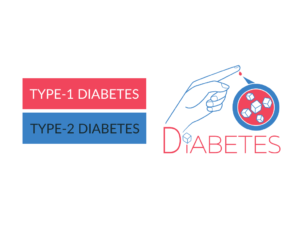Differences Between Gastric Sleeve and Gastric Bypass
Introduction
Obesity is a major problem faced by people all around the world, leading to various health issues. Bariatric surgery is a popular weight loss option for those with severe obesity. Two of the most common bariatric surgeries performed are the gastric sleeve and gastric bypass. While both surgeries aim to achieve weight loss, they differ in the way they do it. In this article, we will discuss the differences between gastric sleeve and gastric bypass.
What is Gastric Sleeve?
Gastric sleeve is a surgical procedure in which a large portion of the stomach is removed to restrict the amount of food a person can eat. The remaining portion is shaped like a sleeve, hence the name. This procedure is also known as sleeve gastrectomy.
Examples of Gastric Sleeve
– Vertical Sleeve Gastrectomy (VSG)
– Laparoscopic Sleeve Gastrectomy (LSG)
Uses of Gastric Sleeve
Gastric sleeve is recommended for people with a BMI (Body Mass Index) of 40 or higher, or those with a BMI of 35 or higher with comorbidities such as high blood pressure, diabetes, or sleep apnea.
What is Gastric Bypass?
Gastric bypass is a surgical procedure in which a small pouch is created at the top of the stomach. This pouch is then connected to the small intestine, bypassing a portion of the stomach and the first part of the small intestine. This limits the amount of food a person can eat and prevents the absorption of some calories.
Examples of Gastric Bypass
– Roux-en-Y gastric bypass
– Biliopancreatic diversion with duodenal switch (BPD/DS)
Uses of Gastric Bypass
Gastric bypass is recommended for people with a BMI of 40 or higher, or those with a BMI of 35 or higher with comorbidities such as type 2 diabetes.
Differences Table
| Difference Area | Gastric Sleeve | Gastric Bypass |
|---|---|---|
| Procedure | Involves the removal of a large portion of the stomach, leaving a sleeve-shaped stomach behind. | Involves creating a small stomach pouch and rerouting a portion of the small intestine. |
| Weight Loss | Average weight loss of 60-70% of excess weight. | Average weight loss of 70-75% of excess weight. |
| Complications | Lower risk of complications such as dumping syndrome, malnutrition, and stomach ulcers. | Higher risk of complications such as dumping syndrome, malnutrition, and stomach ulcers. |
| Dietary Restrictions | No major dietary restrictions after surgery. | Requires lifelong dietary restrictions and vitamin supplements. |
| Recovery Time | Shorter recovery time compared to gastric bypass. | Longer recovery time compared to gastric sleeve. |
| Revisions | Difficult to perform revisions due to the permanent nature of the procedure. | Easier to perform revisions due to the detachable nature of the procedure. |
| Surgical Time | Shorter surgical time compared to gastric bypass. | Longer surgical time compared to gastric sleeve. |
| Complication Rates | Lower complication rates compared to gastric bypass. | Higher complication rates compared to gastric sleeve. |
| Resolution of Comorbidities | Can improve or resolve comorbidities such as high blood pressure, diabetes, and sleep apnea. | Can improve or resolve comorbidities such as type 2 diabetes and sleep apnea. |
| Cost | Generally less expensive than gastric bypass. | Generally more expensive than gastric sleeve. |
Conclusion
Both gastric sleeve and gastric bypass are effective weight loss options for people with severe obesity. However, they differ in their procedures, recovery time, weight loss outcomes, and complication rates. Consult with your doctor to determine which surgery best fits your needs.
Knowledge Check
1. What is the surgical procedure involved in gastric sleeve?
Answer: Sleeve gastrectomy
2. What is the average weight loss for gastric bypass?
Answer: 70-75% of excess weight
3. Which bariatric surgery has lower risk of complications?
Answer: Gastric sleeve
4. What type of patients are recommended for gastric bypass?
Answer: Those with a BMI of 40 or higher, or those with a BMI of 35 or higher with comorbidities
5. What type of patients are recommended for gastric sleeve?
Answer: Those with a BMI of 40 or higher, or those with a BMI of 35 or higher with comorbidities
6. Which bariatric surgery requires lifelong dietary restrictions and vitamin supplements?
Answer: Gastric bypass
7. Which bariatric surgery has shorter recovery time?
Answer: Gastric sleeve
8. Is it easy to perform revisions on gastric sleeve?
Answer: No, it’s difficult due to the permanent nature of the procedure.
9. What type of comorbidities can be resolved with gastric sleeve?
Answer: High blood pressure, diabetes, and sleep apnea
10. Which bariatric surgery is generally less expensive?
Answer: Gastric sleeve
Related Topics
– Lap-Band Surgery vs. Gastric Sleeve
– Gastric Bypass vs. Duodenal Switch
– Gastric Sleeve vs. Body Contouring


